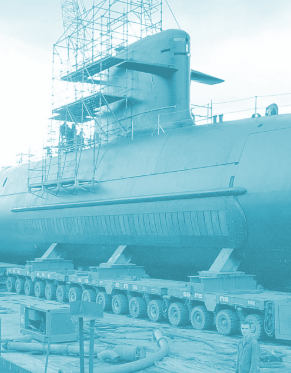Sub request casts doubt
 Australia’s defence plans hinge on submarines that the US is struggling to build for itself.
Australia’s defence plans hinge on submarines that the US is struggling to build for itself.
The Biden administration has requested emergency funding of $8.8 billion to address production shortfalls in the United States' Virginia-class submarine program, sparking fresh concerns over the feasibility of Australia's AUKUS defence agreement with the US and UK.
The funding request aims to address cost overruns for three submarines and includes measures to improve shipyard capacity and attract skilled workers such as welders and engineers.
A senior US Navy official has admitted the program is not meeting strategic defence targets.
“Our Virginia-class fast attack submarine program is not where it needs to be right now,” they told military news publication Breaking Defense.
Current production averages 1.3 submarines per year, significantly below the Pentagon’s target of at least two per year for domestic needs and an additional boat every three years for allied sales, including to Australia. The emergency funds would assist with meeting these production goals.
Under the AUKUS pact, Australia is set to acquire at least three Virginia-class submarines in the 2030s. However, American shipyard delays have cast doubt on this timeline.
Australia has already pledged $4.62 billion to support US industrial base improvements, and the Australian Submarine Agency (ASA) expressed support for the Biden administration's latest funding request.
The ASA says the US has taken “many steps” to boost investment in submarine production.
Despite these assurances, Greens Senator David Shoebridge remains sceptical.
“No serious observer of the US submarine industrial capacity thinks it will come anywhere near producing surplus submarines for Australia,” he said.
Shoebridge also warned of potential waste if the project collapses, raising transparency concerns regarding Australia's financial commitments.
The Senate’s Joint Committee on Treaties has backed the AUKUS agreement, recognising its strategic importance in the Indo-Pacific.
The committee has downplayed concerns over treaty wording perceived as favouring the US and UK.
It concluded the agreement was in Australia's national interest and would generate 20,000 jobs while bolstering infrastructure and education.
However, legal experts have criticised AUKUS for its risks to Australian sovereignty. They argue the treaty disproportionately indemnifies the US and UK while leaving Australia with significant liabilities, including nuclear waste management responsibilities.
The first phase of the AUKUS plan involves US and UK submarines rotating out of Western Australia from 2027.
By the 2040s, Australia aims to operate its own fleet of nuclear-powered submarines, developed in Adelaide at an estimated cost of $368 billion by 2055.
Meanwhile, stakeholders emphasise the need for workforce upskilling and public education on the program's benefits to counter opposition.








 Print
Print